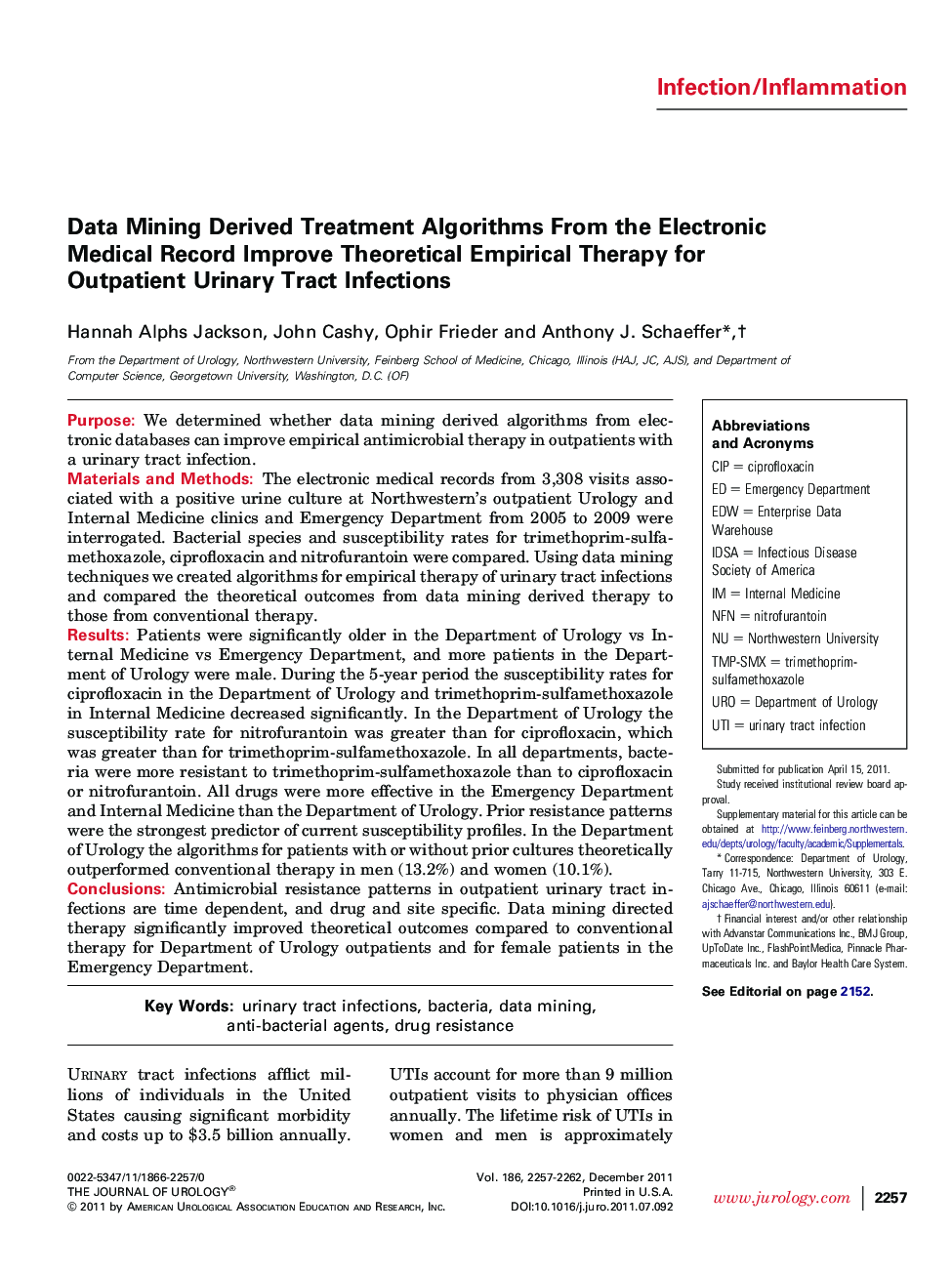| کد مقاله | کد نشریه | سال انتشار | مقاله انگلیسی | نسخه تمام متن |
|---|---|---|---|---|
| 3870232 | 1598941 | 2011 | 6 صفحه PDF | دانلود رایگان |

PurposeWe determined whether data mining derived algorithms from electronic databases can improve empirical antimicrobial therapy in outpatients with a urinary tract infection.Materials and MethodsThe electronic medical records from 3,308 visits associated with a positive urine culture at Northwestern's outpatient Urology and Internal Medicine clinics and Emergency Department from 2005 to 2009 were interrogated. Bacterial species and susceptibility rates for trimethoprim-sulfamethoxazole, ciprofloxacin and nitrofurantoin were compared. Using data mining techniques we created algorithms for empirical therapy of urinary tract infections and compared the theoretical outcomes from data mining derived therapy to those from conventional therapy.ResultsPatients were significantly older in the Department of Urology vs Internal Medicine vs Emergency Department, and more patients in the Department of Urology were male. During the 5-year period the susceptibility rates for ciprofloxacin in the Department of Urology and trimethoprim-sulfamethoxazole in Internal Medicine decreased significantly. In the Department of Urology the susceptibility rate for nitrofurantoin was greater than for ciprofloxacin, which was greater than for trimethoprim-sulfamethoxazole. In all departments, bacteria were more resistant to trimethoprim-sulfamethoxazole than to ciprofloxacin or nitrofurantoin. All drugs were more effective in the Emergency Department and Internal Medicine than the Department of Urology. Prior resistance patterns were the strongest predictor of current susceptibility profiles. In the Department of Urology the algorithms for patients with or without prior cultures theoretically outperformed conventional therapy in men (13.2%) and women (10.1%).ConclusionsAntimicrobial resistance patterns in outpatient urinary tract infections are time dependent, and drug and site specific. Data mining directed therapy significantly improved theoretical outcomes compared to conventional therapy for Department of Urology outpatients and for female patients in the Emergency Department.
Journal: The Journal of Urology - Volume 186, Issue 6, December 2011, Pages 2257–2262